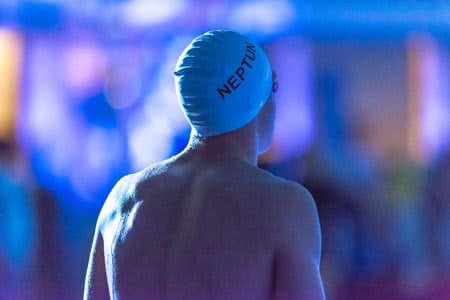7 Tips For How To Use Anxiety To Improve Performance

Optimal performance is something so many of us strive for in our lives, but it isn’t easy to actually know how to use anxiety to improve performance. And yet channeling anxiety into success is one of the most intrinsically rewarding experiences we can have, according to at least one psychologist.
Perhaps the most influential thinker in optimal performance is psychologist, Mihaly Csikszentmihalyi, who coined the term flow with the publication of his book by the same title in 1990. His ideas were groundbreaking, and he has done much to define what we know about peak performance. Flow has been described as the optimal experience of engaging in peak productivity, that combines effort, struggle, and anxiety to create necessary arousal and focus.
Stress and anxiety are a key part of the flow equation, and without them, optimal performance can’t happen. Indeed Csikszentmihalyi asserts “most enjoyable activities are not natural, they demand an effort that initially one is reluctant to make. But once the interaction starts to provide feedback to the person’s skills, it usually begins to be intrinsically rewarding.”[i]
Anxiety’s contribution to optimal performance is still being researched and understood, but there are already some key take-aways for how we can all begin using this emerging science to our advantage. Here are the top 7 ways to use anxiety to improve performance.
- Change your attitude about anxiety, and embrace it as resource for good. A large scale study of stress and its impact on health demonstrated that stress is only harmful when we believe it is, even when it is severe. Believing you can handle stress and anxiety, even if it is intense, protects against doubt and the negative spiral that can come from fearing anxiety.
- Optimize focus. According to science, one of the most powerful things anxiety does is harness focus, and redirect attention where it’s needed most. With so many competing demands for our attention, and the targeted effort it takes to focus, anxiety can give us the boost we need to step up our performance.
- Anxiety is a natural motivator. Stress stimulates dopamine that fuels the ‘motivation to act’. Anxiety is seldom praised for its reflexive energy for action, but it has long been associated with a drive to do something. Even Webster’s defines anxiety is a “fear or nervousness about what might happen” along with “a feeling of wanting to do something very much.”
- Anxiety keeps you alert, vigilant, and ready for optimal performance. Not only does anxiety keep you motivated, it may help you be more efficient in your actions. Research from France suggests that stress allows for efficient detection of threat, along with swift action. Neural processing is fast and selective in sensory and motor systems, allowing for peak efficiency in processing and responding to stimuli.
- Anxiety reminds you of things you’ve forgotten, things that need attention. Anxiety errs on the side of caution (thanks to its negativity bias) and can even overgeneralize and exaggerate potential risk. While this isn’t a comfortable experience to envision the worst, avoiding an unwanted outcome can give us the jolt we need to stay on task.
- Reappraise any performance anxiety as excitement. The latest science of emotion suggests that emotions are constructions we actively participate in creating. We feel a sensation, run it passed our experiences and vocabulary, and in choosing a label actually construct the emotion we experience. In studying the impact of reappraisal on anxiety, Alison Brooks at Harvard took this concept of emotional construction a step further. She found that participants who simply reappraised their performance anxiety as excitement felt significantly less distress than those who did not.
- Prioritize sleep if you can. Research continuously demonstrates the power of sleep to help us function at our best – our brains need it to flush toxins and absorb new information. Stress and anxiety work best in our life when they are balanced by rest, and not enough sleep can exacerbate anxiety symptoms. Aim for 7 – 9 hours nightly when striving to perform your best.
As executive coach Ken Lubin has noted in his inspiring blog on this topic, accepting anxiety means accepting you will do what is needed, you will make things happen, and you can do what you do best. Anxiety doesn’t have to be the enemy – it is there to help “prime the pump for greatness” if we allow ourselves to use it that way. Peak performance and optimal experience require we bring our best effort and best self, and working with our anxiety can help us do just that.
Looking for more help with anxiety? Check out my new book, Hack Your Anxiety, sign-up for book bonuses including a free mini-ecourse to help you understand how anxiety impacts your life and how to hack its most common challenges, or subscribe to my biweekly newsletter.
[i] Csikszentmihalyi, Flow: The Psychology of Optimal Experience, 68.